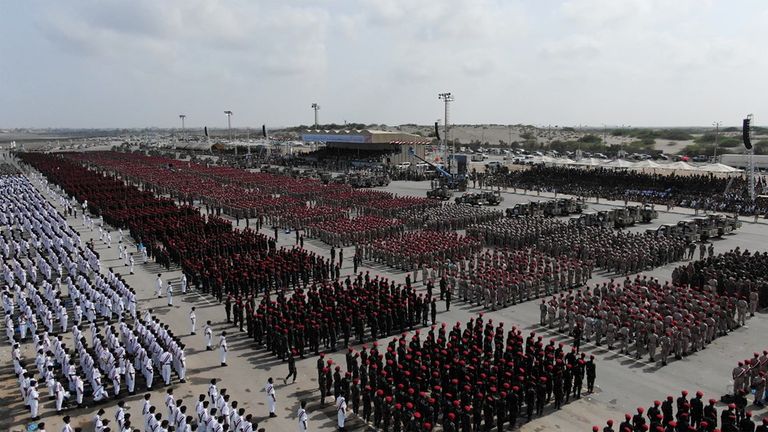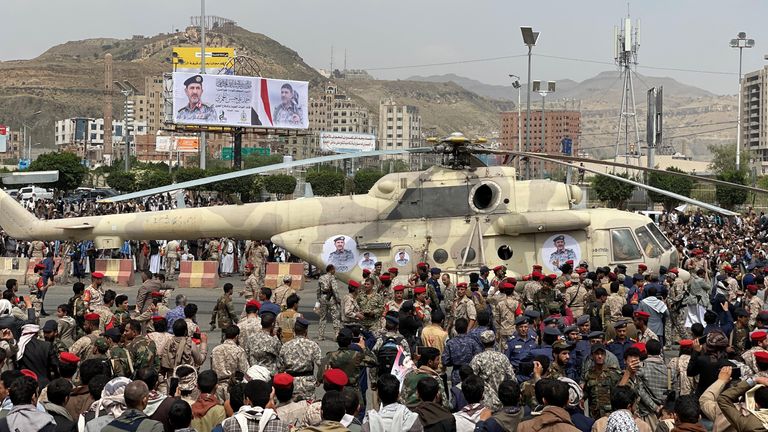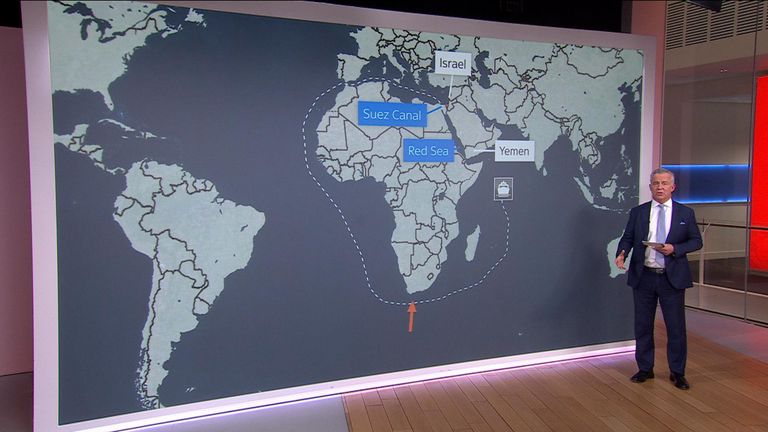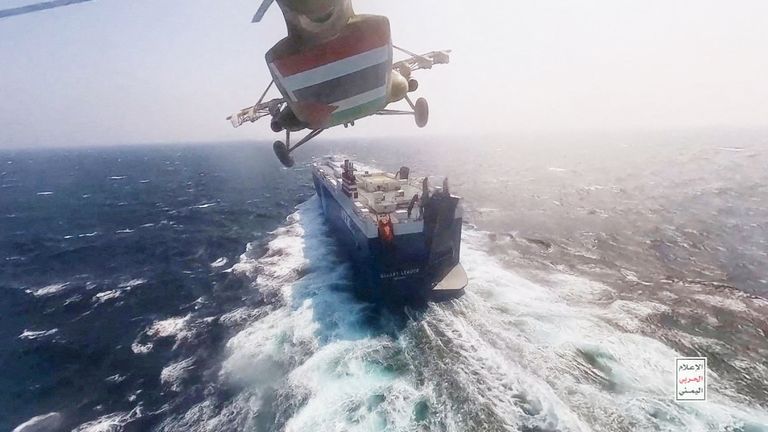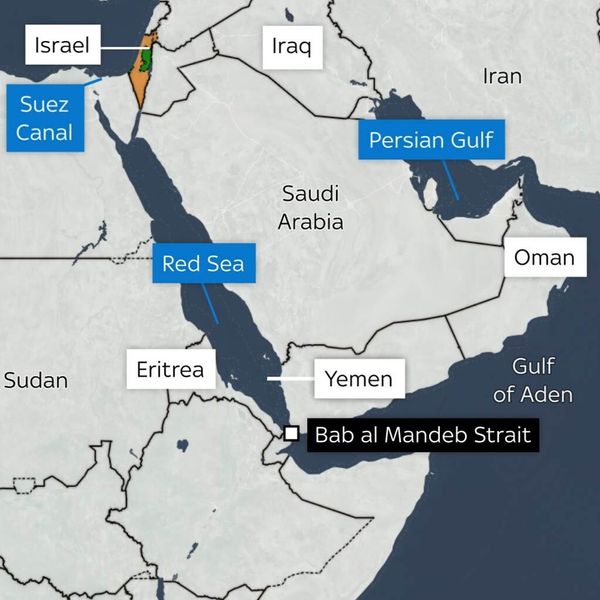In the waters of the Red Sea - one of the world's most important shipping lanes - trouble is brewing.
Members of Yemen's Houthi rebels have stepped up attacks on vessels to show their support for Hamas in its conflict with Israel.
It has led some of the world's largest companies - including shipping giant Maersk and oil company BP - to stop sailings through the Red Sea.
The route is used by ships to access Egypt's Suez Canal - a major shortcut linking the Mediterranean and South and East Asia without the need to travel around Africa.
Israel-Gaza war latest: British ship among those 'attacked' in Red Sea
Who are the Houthis?
The Houthis - officially known as "Supports of God" or "Ansar Allah" in Arabic - are a group of Shia Islamist rebels based in western Yemen.
The group formed in the 1990s as a movement to promote the rights of Zaidi Shias and the Houthi tribe, from which the group gets its name.
It opposes US and Israeli influence in the Middle East - with its slogan containing the words "death to America", "death to Israel" and a "curse upon the Jews".
Backed by Iran and allied with other Islamist groups in the region such as Hamas and Hezbollah, it has also accused Saudi Arabia of "colluding" with the US.
The death of the group's founder, Hussein al Houthi, at the hands of the Yemeni military, sparked a civil war - the Houthi insurgency - in 2004.
The group, now led by his brother, Abdul-Malik al Houthi, also took part in the 2011 Yemeni revolution, gaining further territory.
Since then, it has furthered its area of influence and controls much of Yemen's western seaboard down to the Bab al Mandeb Strait - the entrance to the Red Sea.
Why are they attacking ships in the Red Sea?
The Houthis have been attacking ships in the Red Sea in response to Israel's war in Gaza.
The group, which supports Hamas, has vowed to target vessels it believes are heading to and from Israel.
It has attacked several ships in recent weeks with drones, rockets and in some cases has used helicopters to drop militants on to commercial vessels.
That was the case when militants from the group captured the cargo vessel, the Galaxy Leader, in November.
Houthi rebels have also claimed responsibility for launching an attack on two ships - the Norwegian-owned Swan Atlantic and the Panama-flagged MSC Clara - using drones.
On Monday, the United Kingdom Maritime Trade Operations (UKMTO) noted an attack on at least one British ship off the port of Mokha in Yemen.
Have the attacks had an impact?
With attacks increasing in the region, a number of companies have diverted ship away from the area.
Oil giant BP announced on Monday it had suspended all shipping via the Red Sea as a result of the attacks, citing the safety of crews and vessels as its principal reason for doing so.
Read more from Sky News:
Israel claims to have discovered biggest Hamas tunnel yet in Gaza
Ex-defence secretary warns Israel against 'killing rage' in Gaza
BP followed in the footsteps of shipping giants Maersk, Swiss-based MSC and French group CMA CGM in avoiding the area.
Hapag-Lloyd later added its name.
Evergreen, a huge Chinese shipping company, also announced that it had temporarily suspended import and export services in Israel until further notice, citing the security risk, in addition to halting journeys via the Suez Canal.
Norway-based oil tanker group Frontline said its vessels will avoid passages through the Red Sea and the Gulf of Aden for the time being.
What does it all mean?
About 15% of world shipping traffic transits via the Suez Canal, the shortest shipping route between Europe and Asia.
Experts estimate that avoiding the Red Sea adds about 10 days onto a journey from Asia to North Europe and East Mediterranean - representing an increase of nearly a third.
In 2021, the container ship Ever Given ran aground in the Suez Canal, blocking dozens of container ships carrying products ranging from mobile phones to designer goods for six days.
Experts do not expect disruption on the same scale.
However, the situation in the Red Sea is another headache for the West. The US has deployed a destroyer to the region, while the UK sent Royal Navy warship HMS Diamond to the region two weeks ago.
Over the weekend, it emerged the ship had shot down a drone in the Red Sea that was deemed a threat.
Be the first to get Breaking News
Install the Sky News app for free


US defence secretary Lloyd Austin, speaking on a visit to Israel on Monday, said Washington was building a coalition to address the Houthi threat and said defence ministers from the region and beyond would hold virtual talks on the issue on Tuesday.
Norway said it was ready to provide naval officers, while other NATO states said they were ready to consider support.
Additionally, London's marine insurance market has widened the area in the Red Sea it deems as high risk amid a surge in attacks on commercial ships, according to a statement issued earlier on Monday.
